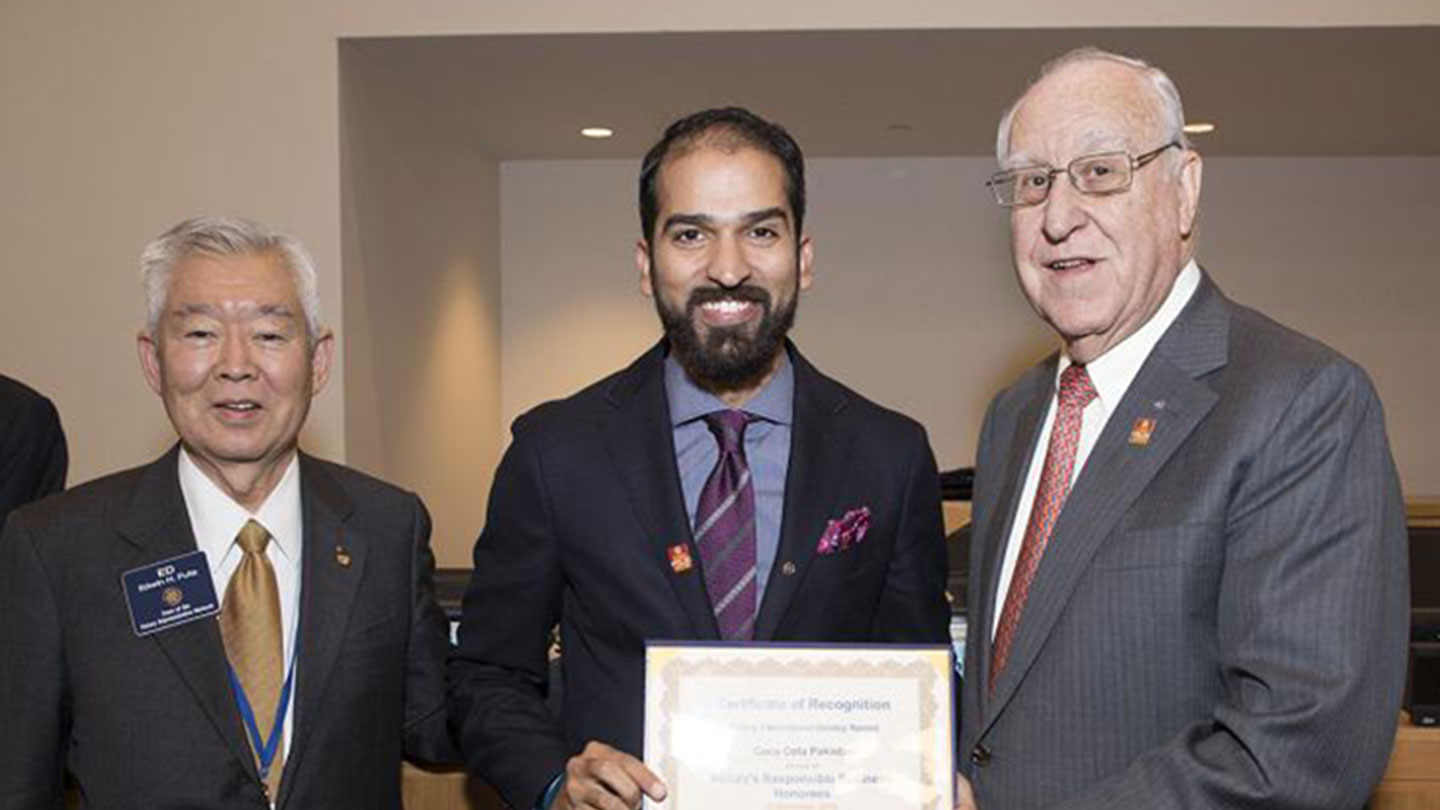
Coca‑Cola Reiterates a Polio-Free Pakistan at Rotary International Convention 2019
13/06/2019
The 110th Annual Convention of Rotary International was held in Hamburg, Germany from June 2nd till 5th, 2019, providing a networking and learning platform for hundreds of Rotarians, diplomats, NGO leaders and corporate guests.
Coca‑Cola Pakistan has been the long-standing partner of PolioPlus Charitable Trust operating in Pakistan under Rotary International for polio eradication efforts as a part of ‘End Polio Now’ campaign. The partnership goes back to 2010 where Coca‑Cola Pakistan funded the first ever and largest polio immunization awareness campaign across Karachi with 160 tons of garbage collected using 16 dumper trucks. In 2012, the Company also funded the first Reverse Osmosis water filtration plant to provide safe drinking water installed in Malir, a polio high-risk area in Karachi, with a donation of US$ 7,000. With a decline in reported polio cases by over 75%, Coca‑Cola Pakistan was honored and recognized as a Rotary Responsible Business Partner in 2016 on Rotary Day at United Nations Headquarters.
At the Rotary International Convention 2019 in Hamburg, Coca‑Cola was represented by Fahad Qadir, Director Public Affairs & Communications, Pakistan & Afghanistan Region as a part of the PolioPlus session to share the progress and learnings from the constant battle against the paralyzing epidemic of polio in Pakistan.
Besides Afghanistan and Nigeria, Pakistan is also on the list of polio endemic countries. “Polio, or poliomyelitis, is a crippling and potentially deadly infectious disease. It is a waterborne disease where the virus spreads from person to person and can invade an infected person’s brain and spinal cord, causing paralysis. Poor sanitation and hygiene environmental conditions; contaminated water, malnutrition; low immunity and no vaccination against vaccine preventable diseases including zero Routine Immunization are the main causes of contracting polio. Lack of clean drinking water in many polio high risk areas is hard on the communities, where women and children have to trek to far out places to fill potable water for the families. Keeping in view, the dire need for clean water, the Pakistan National PolioPlus Charitable Trust (PNPPCT) Rotary International has been increasing effort in installing solar water filtration plants in high risk communities,” explained Aziz Memon, National Chair PNPPCT.
With a grant of US$ 280,000 by The Coca‑Cola Foundation, 12 solar powered water filtration plants have been installed in polio high-risk areas across Pakistan since 2016 as a part of project named “Zindagi” – meaning life. The project is focused on innovative approaches in targeting communities with strategies to eradicate polio. The project Zindagi started activities in those areas identified by UNICEF, WHO and District Governments teams to provide more access to polio eradication teams to administrate polio drops to the community children especially in Pashtun areas to prevent children from water borne diseases and gain more community confidence.
“Although the number of reported polio cases in Pakistan has sprung from 12 to 20 in 2019, this calls for serious damage control and a stronger integrated polio eradication drive. With administrative gaps, lack of social mobilization, negative propaganda through social media for vaccination refusals and lack of security for health workers, polio eradication is becoming a tougher battle every year. We need national and international support for first regaining trust amongst local communities that would directly reduce the polio vaccination refusal rate and help the locals get sensitized with the precautionary measures to prevent this paralyzing epidemic,” highlighted Fahad Qadir, Director PAC, Coca‑Cola Pakistan & Afghanistan Region at the PolioPlus session.
The installation of solar water filtration plants proved to be a useful tool to gain community confidence and allow polio teams in security compromised areas for vaccination of their children. The impact of safe drinking water not only gave confidence to the very community but its ripple effects, mobilized adjoining communities as well. During the last three years the project has gained good mileage in garnering support and confidence through these plants, in twelve locations, to address the provision of clean water and acceptance of the polio vaccine, where chronic refusals persists.